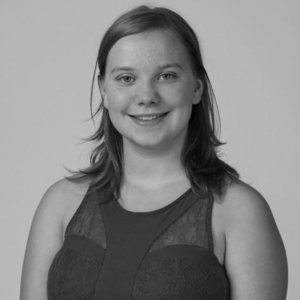Moran: Studying abroad drains your wallet
Friends who studied abroad before me warned me that the experience drains your bank account. That made sense to me on some level, especially when considering the “yes” mentality I wrote about in last week’s column.
Study abroad students are likely to spend a lot of money. We want to travel to other places in the region where we’re studying, and we want to explore new restaurants, shops and activities in the place we are living. We’ve saved up money for this trip, and we’re ready to use it.
I’m no exception to this rule. Being abroad has been great for me, but not great for my finances. I set a budget, but I still see myself exceeding it because I keep convincing myself it’s worth it. Being abroad is a new experience, I tell myself. It’s worth the few extra dollars. The problem is, those few extra dollars here and there really start adding up.
The conversion factor doesn’t help. At the time I wrote this article, one U.S. dollar was equal to almost eight Hong Kong dollars. I haven’t gotten good enough at doing this conversion in my head, so I still have pretty bad sticker shock and I feel like I’m spending way more money than I actually am. I bought dinner at a food court tonight for 55 Hong Kong dollars. so it felt funny to hand over a 100-dollar bill to pay for dinner.
Whenever a good deal is presented, I always feel like I need to take advantage of it. This is especially true for travel outside of Hong Kong. I’ve booked a few trips and am rapidly approaching my cap on travel spending, but I still want to visit everywhere. Whenever people tell me there’s a cheap flight deal to somewhere new, I always want to check it out.
I tell myself, “Maybe I can cut down my spending in another area and spend more money on flights?” Basically, I’m having to prioritize.
Since travel is important to me, I’ve even given myself a big travel allowance within Hong Kong. There are so many places I can go within the city and the surrounding area that don’t cost anything except for the bus or subway fee to get there, so I’m trying to spend more of my time doing those types of things.
Food is, of course, also important, so I’m learning to buy local to save. I get fruits from local stalls and have done a lot of exploring to find the cheapest grocery store. I’m trying to cook more like the locals do. For example, I’ve had to cut a lot of cheese out of my diet because it’s very expensive here.
In my first few weeks here, I grabbed familiar labels and foods because it felt like a piece of home, but I’m doing that less and less now. I have only drawn one hard line on eating local food: I won’t buy the raw meat hanging from hooks in markets and even in some grocery stores. I know that the food is perfectly sanitary to eat and will be fine when cooked, but I can’t bring myself to do it.
I’m learning a lot from my abroad experience, but one of the most practical lessons I’ve learned is about budgeting, money and spending on what matters most to me.
Claire Moran is a junior broadcast and digital journalism and international relations dual major. Her column appears weekly in Pulp. She can be reached at clmoran@syr.edu.
Published on March 9, 2016 at 9:15 pm






